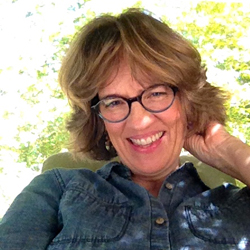(This is what my novel sees.)
Mottos For Writers (A few things I have learned along the way):
Don’t keep anything in your manuscript that you don’t believe to be beautiful or useful. (Stolen and tweaked from designer William Morris, who gave people this advice about their homes.)
Shorten Your Sentences and Cut Your Adverbs. (This is a simple recipe for strengthening most manuscripts.)
Treat Everything You Write Like a Read Aloud. (Listen for your stories even when you are away from a pencil or the keyboard. Then get your first draft down. When you revise listen to the sound of the spoken word.)
Write What You Can’t Ignore. (My personal response to the advice to “Write what you know.” If an idea niggles endlessly at you, you can bet it will hold the fascination of a future reader too.)
Other advice:
Join the SCBWI (the Society of Children’s Book Writers & Illustrators) at SCBWI.org
Sign up for the Writer’s Almanac! It’s a daily email delivery of a poem, bio bits, and blurbs about writers and their craft, and history notes of interest, all selected by the warm and witty Garrison Keillor. Distributed by American Public Media, the Writer’s Almanac can also be heard on the radio. writersalmanac.org
Recommended Websites:
The Purple Crayon: www.underdown.org
(More to come!)
Recommended Reading:
Bird By Bird, by Anne Lamott
On Writing, by Stephen King
The Forest Through the Trees: and Editor’s Advice to Writers, by Betsy Lerner
Dear Genius: the Letters of Ursula Nordstrom, by Leonard S. Marcus
Second Sight: an Editor’s Talks on Writing, Revising & Publishing Books for Children and Young Adults, by Cheryl Klein
Recommended podcasts:
Thoughts on Critique Groups
First, join one! You might have to try on a few to find the best fit for you, but please try this for your writing self. My success has everything to do with the supportive circles of writers I share my early drafts with. I meet regularly with two groups: one large open group, and one small closed group.
Formats for critique groups vary. Some meet and read aloud, some send manuscript pages out to be read before the gathering, some are on line and never physically meet. You’ll figure out what works for you.
I favor meeting and reading at the table, by far. I read my work aloud at home all the time. (Ask my dogs.) But when I read at a group, I hear the work in a new way. I get information even before others respond.
This format also sets a known demand on everyone’s time. I’m a very slow reader and it’s hard for me to have someone else’s story in my head during my own work time. Emailed pages would surely pile up on me.
Typically, a large open group will meet monthly at a set time and night in a library, community center, or other public building. I think all groups need guidelines and here are my suggestions:
Arrival: Try to be on time! Greet each other, of course, but keep arrival to ten minutes. Welcome your newcomers. Send a sign-in book around so you know how many writers have brought work to read. (The book becomes a group diary if you record your projects.)
The facilitator—either the same one, or a rotating schedule of regular attendees—needs to gauge the time. Once you sit down, go around the room and introduce yourselves. Share writing news, including conference notes, professional questions and progress. Each attendee should try to keep to five minutes. Avoid tangents, but remember, there will be great celebrating from time to time, so toast new contracts and be merry!
Break: Take a short break (coffee? tea? cookies?) and again, reach out to newcomers. Then call the meeting back to order.
Critique:
Readers, when it is your turn read it! It’s okay to name the genre or remind everyone what chapter you are on, but don’t talk endlessly about what you’re going to read. Just go ahead and read it, slowly and clearly.
Listeners, be jotting down notes so you can refer to them when you offer help. (An option: Readers might want to bring a few copies of the chapters for attendees to read along with, especially for anyone with an auditory processing issue. But consider saving paper too!)
When the reader finishes, an interlude of silence serves everyone. Readers, you must be quiet and listen. Really listen. Resist that temptation to list mistakes you heard or explain what you just read. It’s okay; you are experiencing the value of hearing your work aloud.
Listeners, your critique should be thoughtful respectful, and honest. Here’s a tip: Think of “critique” as a combination of emotional response, constructive advice, and praise. Don’t forget the praise! It is as useful for writers to hear what they’ve done well as it is for them to discover what isn’t scanning. Often, responders ask questions. The reader might answer on the spot. But keep in mind that the real value of all questions and comments is to let the writer know what the listener is thinking about. Readers, this is when you find out what you conveyed vs. what you meant to convey. Sometimes the best response to a question is simply saying thank you.
Be careful not to “critique the critique.” Responses are personal, and they’re given in the spirit of being helpful. Listeners, if you made notes, pass them to the reader at the end of the turn. (I think of these notes as “love letters,” by the way.)
Readers, what you choose to do with the comments is all up to you, but I suggest mining the heck out of them for great information that you’ll use in a revision. (That’s what this is all about!)
Arguing—even if a response catches you by surprise—should not be part of the deal. Instead, let the point settle then begin to figure out why your listeners are confused— even if it’s something that they missed. (That does happen, and a small tweak might be all you need to clarify.)
Finally, if the meeting time runs away and someone doesn’t get to read, they should be the first name on the list for the next meeting. Be impeccable about this. It can feel crushing to get left out.
About the small closed group:
My small critique group (we are eight, and we are a spin-off of the large group—not the only one!) meets twice a month, alternating homes in a volunteer pattern. The host messages everyone a day or two in advance to find out how many are coming and how many are reading. That helps us gauge our time. (We don’t use a sign-in book.)
We choose to have breakfast. That’s when we talk about what’s been happening in our writing lives. We recap conferences, meetings, travels and events, and yes—we celebrate new contracts. Hooray! Our meeting design parallels the one I described above and is nuanced by our intimacy.
We’ve been meeting for many years. We try not to slip into a habit of spending a lot of our time on personal matters. But we are heart and soul close friends. So, yes, we support each other in all things. This is a crit group perk that I wouldn’t change for anything.




